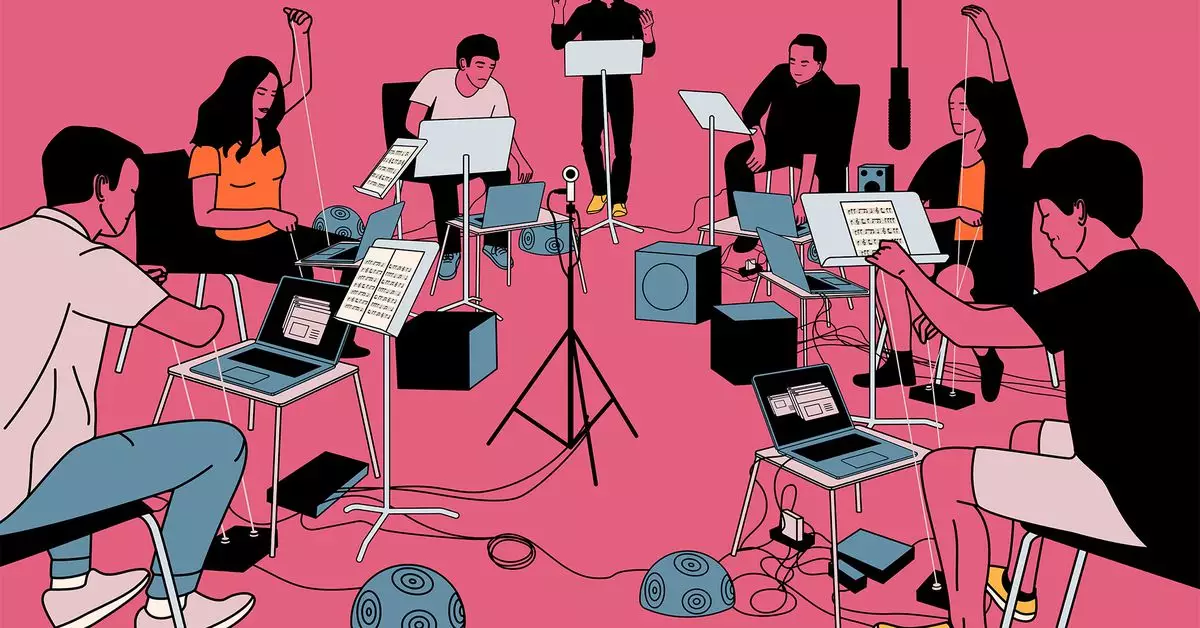In the intricate realm of musical composition, Ge Wang emerges as a pivotal figure whose innovative approach to technology redefines the way we perceive music-making. Unlike traditional musicians who typically utilize computers as tools for composition and production, Wang employs them as instruments of artistic exploration. Operating from his position as an associate professor at Stanford University’s esteemed Center for Computer Research in Music and Acoustics, Wang’s work incorporates a unique blend of academia and practical application that sets him apart in the field.
Wang’s involvement with the Stanford Laptop Orchestra, combined with his role as a co-founder of the music application Smule, has positioned him at the forefront of computer music. His creation of the programming language Chuck, which converts code into sound, showcases his forward-thinking philosophy, allowing musicians to treat technology not just as a medium but as a creative partner. This interaction between humans and machines reshapes our understanding of what music can be in an increasingly digital world.
A vital aspect of Wang’s philosophy lies in education. He emphasizes the importance of encouraging students to engage with technology in a playful manner, rather than viewing it as a rigid framework to master. This method creates an environment where experimentation is prioritized over technical perfection. Wang’s approach allows for a more organic interaction with technology, where students can discover their unique sound palettes and artistic identities.
This educational philosophy resonates particularly well in an era dominated by artificial intelligence. As tools become more intelligent and capable of generating content with ease, Wang urges developers and creators to focus on the essence of human creativity. What does it mean to innovate in a space where AI can produce a symphony or write a novel at the click of a button? The conversation around this question becomes increasingly relevant, as it invites us to consider the inherent value of the creative struggle and the emotional connections tied to the artistic process.
As technology evolves, so does our notion of creativity itself. The convenience provided by advanced tools often raises critical questions about what it means to create. With countless applications designed to simplify the artistic process, we must ponder whether our pursuit of ease is truly beneficial. Wang challenges us to reflect on the depths of human experience and connection that can often be sidelined in favor of efficiency.
This inquiry leads us to a broader understanding of our identity as creators. Are we merely facilitators of technology, or do we bring something intrinsically human to the table? The conversation traverses profound themes, addressing the complexities of being an artist in a digital age while exploring the implications of what it means to have our artistic expressions mediated by machines.
Ge Wang’s insights pave the way for a more nuanced conversation about the future of music and creativity in a technology-saturated landscape. By fostering an environment for playful engagement with technology and challenging conventional notions of efficiency and creation, he emphasizes the importance of preserving the essence of what it means to be human in an increasingly automated world. Whether through discussions about teaching, the role of AI, or the exploration of creativity itself, Wang’s perspective enriches our understanding of the relationship between music, technology, and humanity. As we navigate this complex terrain, it is crucial to remind ourselves of the value of the creative process, the joys of experimentation, and the depth of emotional expression in an age that often seeks simplicity.

